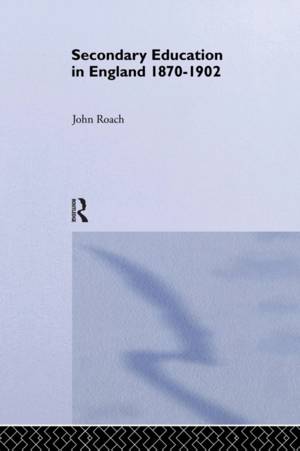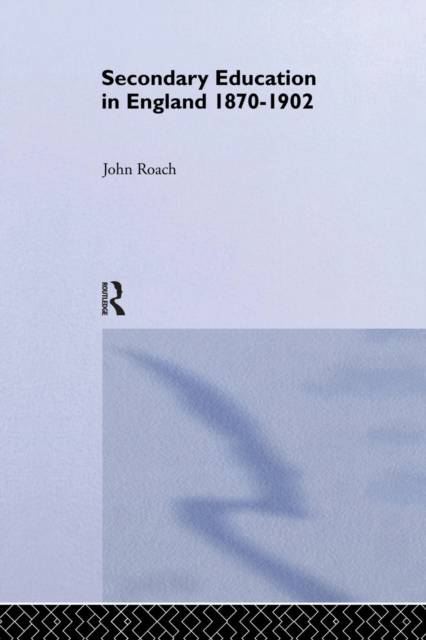
Door een staking bij bpost kan je online bestelling op dit moment iets langer onderweg zijn dan voorzien. Dringend iets nodig? Onze winkels ontvangen jou met open armen!
- Afhalen na 1 uur in een winkel met voorraad
- Gratis thuislevering in België vanaf € 30
- Ruim aanbod met 7 miljoen producten
Door een staking bij bpost kan je online bestelling op dit moment iets langer onderweg zijn dan voorzien. Dringend iets nodig? Onze winkels ontvangen jou met open armen!
- Afhalen na 1 uur in een winkel met voorraad
- Gratis thuislevering in België vanaf € 30
- Ruim aanbod met 7 miljoen producten
Zoeken
Secondary Education in England 1870-1902
Public Activity and Private Enterprise
John Roach
Paperback | Engels
€ 90,45
+ 180 punten
Uitvoering
Omschrijving
In this comprehensive and extensively researched history, John Roach argues for a reassessment of the relative importance of State regulation and private provision. Although the public schools enjoyed their greatest prestige during this period, in terms of educational reform and progress their importance has been exaggerated. The role of the public school, he suggests, was social rather than academic, and as such their power and influence is to be interpreted principally in relation to the growth of new social elites, the concept of public service and the needs of the empire for a bureaucratic ruling class. Only in the modern progressive movement, launched by Cecil Reddie, and the private provision for young women, was lasting progress made. Even before the 1902 Education Act however the State had spent much time and effort regulating and reforming the old educational endowments, and it is in these initiatives that the foundations for the public provision of secondary educational reform are to be found.
Specificaties
Betrokkenen
- Auteur(s):
- Uitgeverij:
Inhoud
- Aantal bladzijden:
- 296
- Taal:
- Engels
Eigenschappen
- Productcode (EAN):
- 9781138868151
- Verschijningsdatum:
- 27/04/2015
- Uitvoering:
- Paperback
- Formaat:
- Trade paperback (VS)
- Afmetingen:
- 156 mm x 234 mm
- Gewicht:
- 417 g

Alleen bij Standaard Boekhandel
+ 180 punten op je klantenkaart van Standaard Boekhandel
Beoordelingen
We publiceren alleen reviews die voldoen aan de voorwaarden voor reviews. Bekijk onze voorwaarden voor reviews.











